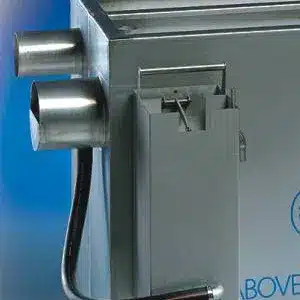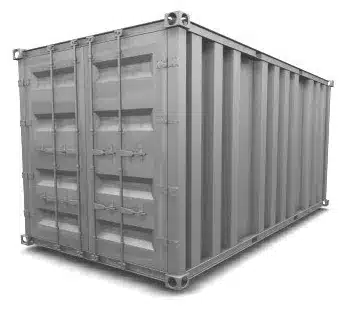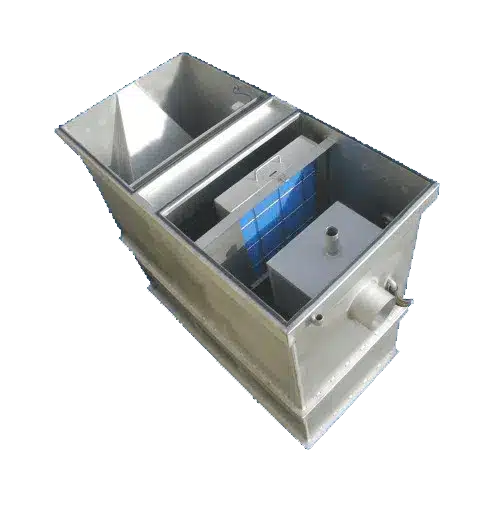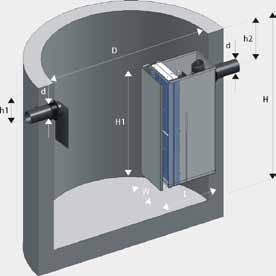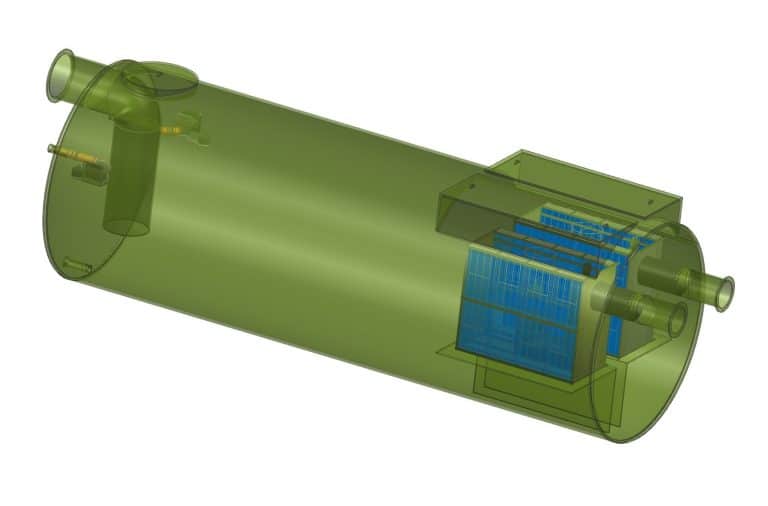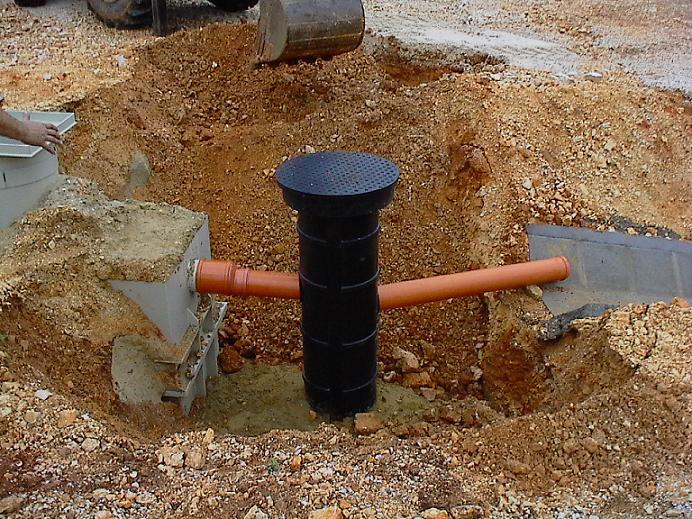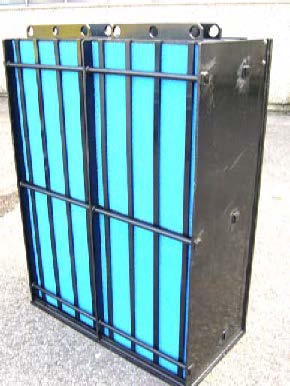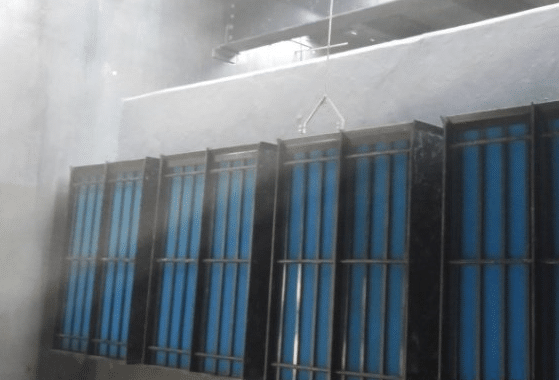Do you know about the hidden heroes in New Jersey’s industrial world? Oil Water Separator Tanks New Jersey are key to protecting our water and following environmental laws. They are changing how companies handle their impact on the environment.
In New Jersey, where industry and nature meet, oil water separator tanks are essential. They help remove petroleum from water, making the water cleaner and better for managing stormwater.
New Jersey values protecting the environment, and companies are using advanced solutions like Freytech Inc.’s tanks. These tanks use the latest technology for better separation and follow strict environmental rules.
Key Takeaways
- Oil water separator tanks are vital for industrial wastewater treatment in New Jersey
- These systems effectively separate petroleum hydrocarbons from water
- Advanced separators ensure compliance with strict environmental regulations
- Freytech Inc. offers state-of-the-art solutions with enhanced coalescing technology
- Proper oil water separation is crucial for stormwater management and environmental protection
Understanding Oil Water Separator Tanks
Oil water separator tanks are key in treating oily water. They help companies meet environmental laws and keep water clean. Let’s see how they work and their various types.
What are Oil Water Separators?
Oil water separators remove oil and petroleum products from water. They’re used in industries with oil-contaminated runoff or wastewater. These systems can be above ground or underground, based on the facility’s needs.
How Do They Work?
These separators use gravity and special materials to separate oil from water. As the mixture moves through the tank, oil floats to the top and water sinks. Some models use coalescing plates to merge small oil droplets, making them easier to remove. This method is vital for controlling spills and treating water.
Types of Oil Water Separators
There are many types of oil water separators. The American Petroleum Institute (API) separator is often used in big facilities. Coalescing Plate Separators (CPS) are smaller but more efficient. For smaller needs, underground tanks with built-in separators are a good choice. Each type is best for different situations in oily water treatment.
Benefits of Oil Water Separator Tanks in New Jersey
Oil water separator tanks are a big help for New Jersey businesses. They play a key role in recycling wastewater. This helps companies follow strict environmental rules. These tanks make sure water is clean before it goes back into nature.
They also help with stormwater retention. When it rains a lot, these tanks keep polluted water from getting into rivers and lakes. This is very important in New Jersey, where cities can get a lot of pollution from stormwater.
These tanks are easy to move and set up, fitting into many different places. They’re used in everything from car shops to factories. This makes it easier for businesses to follow environmental laws without slowing down.
Using oil water separator tanks helps New Jersey companies stay out of trouble with the law. They avoid big fines and legal problems by keeping water clean. This shows they care about the planet, which can make them more respected by customers and the community.
Oil Water Separator Tanks New Jersey: Regulatory Compliance
New Jersey has strict rules for industrial wastewater treatment. These rules protect our water and manage stormwater well. Companies in the state must follow both local and federal laws to stay in line with environmental standards.
New Jersey Environmental Regulations
The New Jersey Department of Environmental Protection manages wastewater permits. These permits have limits on pollutants in industrial runoff. Oil water separator tanks are key in meeting these standards. They filter out contaminants before water goes into the environment.
Federal EPA Standards
The EPA sets rules for water quality and pollution control across the country. Oil water separators are not seen as underground storage tanks. Yet, they are vital for meeting EPA standards. These systems help industries follow the North American hydrocarbon discharge limit of 10 parts per million (PPM).
Discharge Limits and Permits
Businesses in New Jersey need the right permits for wastewater discharge. These permits specify limits for pollutants. Advanced oil water separators can remove oil to very low levels. Some systems can cut oil content to 5 PPM or even 0.1 PPM for emulsified oil. This efficiency helps companies meet regulations and avoid fines.
Freytech Inc.: Leading Provider of Oil Water Separator Solutions
Freytech Inc. is a top name in New Jersey for oil water separator tanks. They offer innovative solutions for different industries. These solutions help with effective wastewater treatment and meet environmental standards.
Enhanced Coalescing Technology
Freytech’s oil water separators use cutting-edge coalescing technology. This technology removes oil droplets from water efficiently. It can separate oil as low as 5 parts per million, beating most industry standards.
Separation Efficiency Guarantees
The company promises top-notch separation efficiency. Their systems work with various hydrocarbons like motor oil, diesel, gasoline, and jet fuel. This makes them perfect for many industries in New Jersey.
Customized Solutions for Various Industries
Freytech Inc. offers custom oil water separator solutions. They create systems that fit specific industry needs. This ensures the best performance and follows environmental laws closely. It helps New Jersey businesses stay compliant and improve their wastewater treatment.
Maintenance and Cleaning of Oil Water Separator Tanks
Oil water separator tanks are vital for oily water treatment and wastewater recycling. They need regular maintenance to work well. This keeps them separating oil from water effectively, stopping environmental harm and following the law.
Cleaning these tanks should match how often they are used. For places that use them a lot, they might need cleaning every three months. Places that use them less might only need cleaning every six months or a year. When cleaning, technicians take out sludge and sediment that can slow down the separation process.
Checking for spills is also important for these tanks. Regular checks can spot leaks or other issues early. This stops big clean-ups and keeps the environment safe.
Experts who service these tanks remove oil, clean filters, and check parts for wear. This detailed work keeps the system running well. It also makes the tank last longer and work better at treating oily water.
These separators are crucial in storm water systems. They process runoff to meet the US EPA’s Clean Water Act standards. With effective oily water treatment, facilities protect the environment and dodge big fines.
Conclusion
Oil water separator tanks are key in New Jersey for treating industrial wastewater. They help businesses follow strict environmental rules and protect local water. These tanks remove oil and other pollutants, keeping water clean and supporting green practices.
Freytech Inc. is a top name in New Jersey for oil water separators. Their technology is top-notch, removing more contaminants than needed. This makes it easier for businesses to meet environmental laws.
Keeping oil water separator tanks in good shape is important for their long life. Regular cleaning and checks keep them working well. This protects the environment and saves companies from fines. By choosing quality tanks and following best practices, New Jersey industries can help make a cleaner, greener future.

